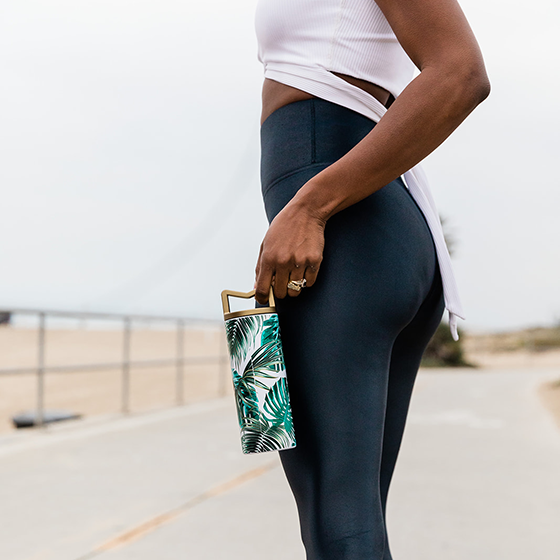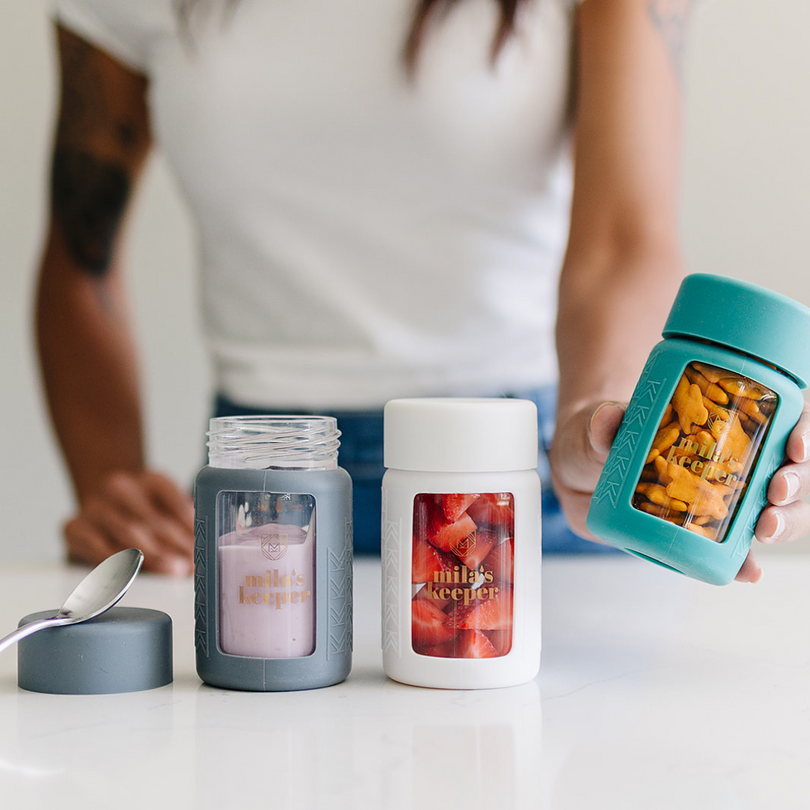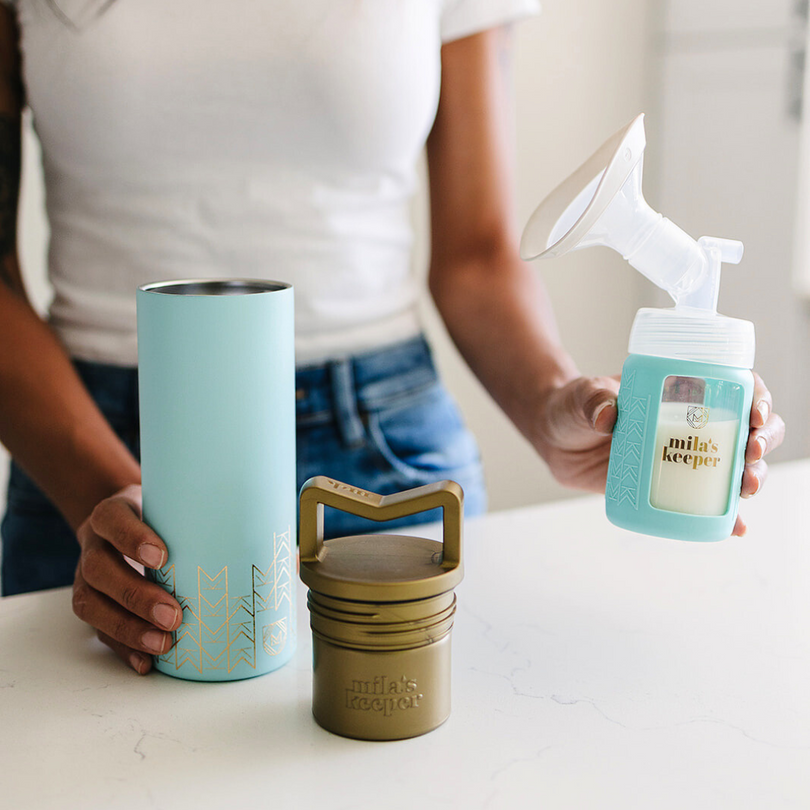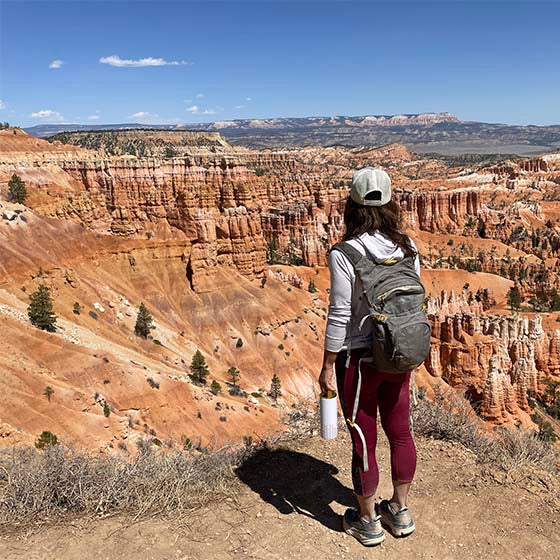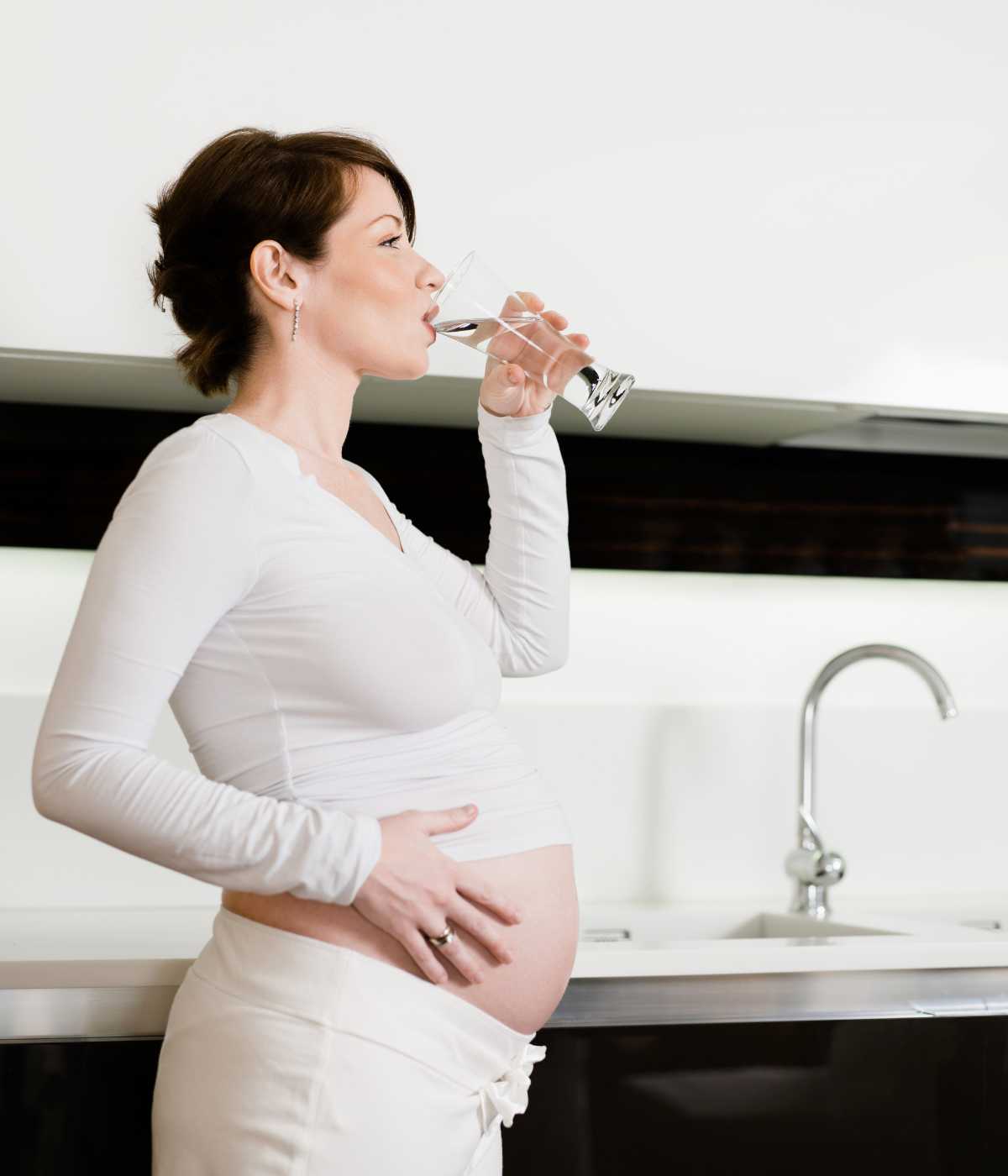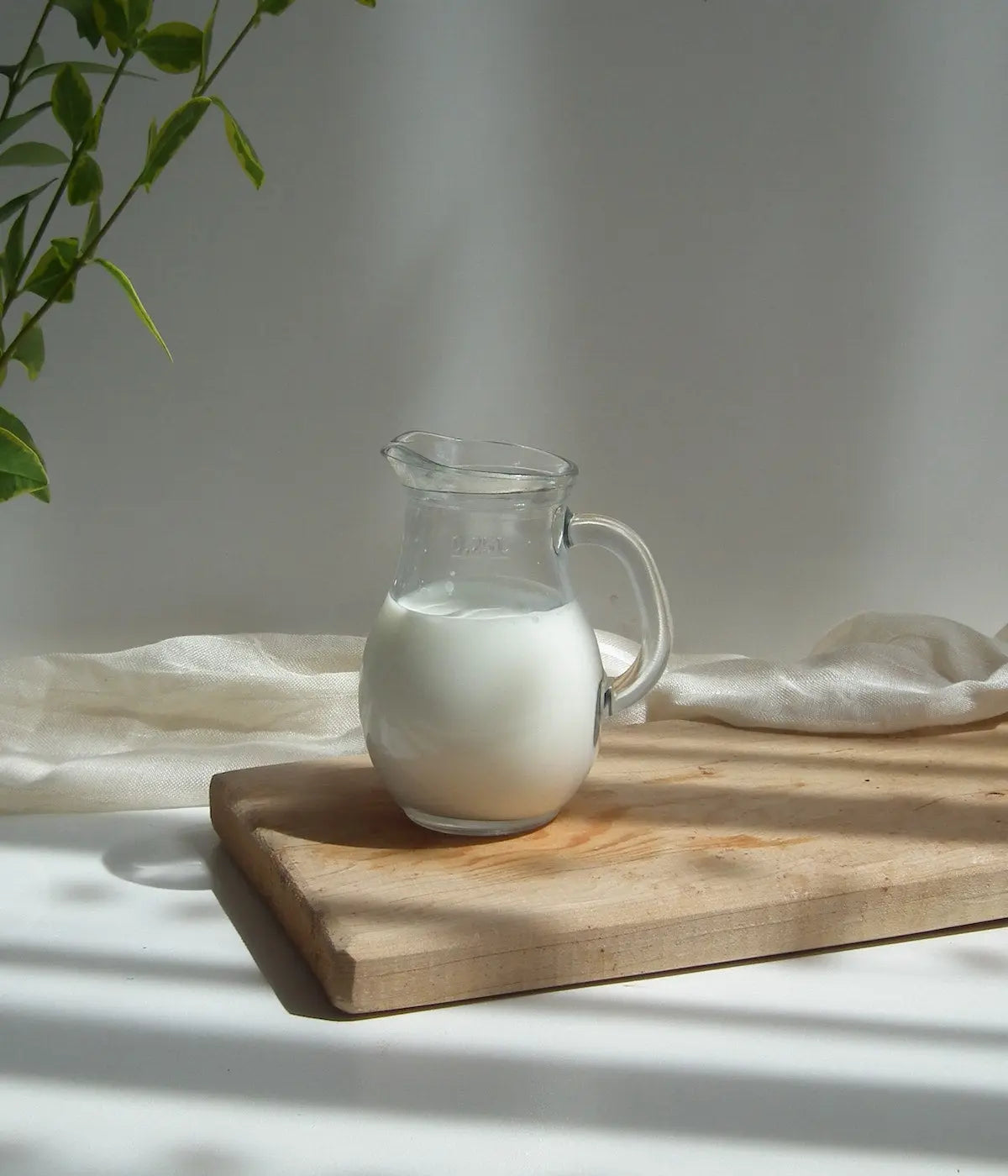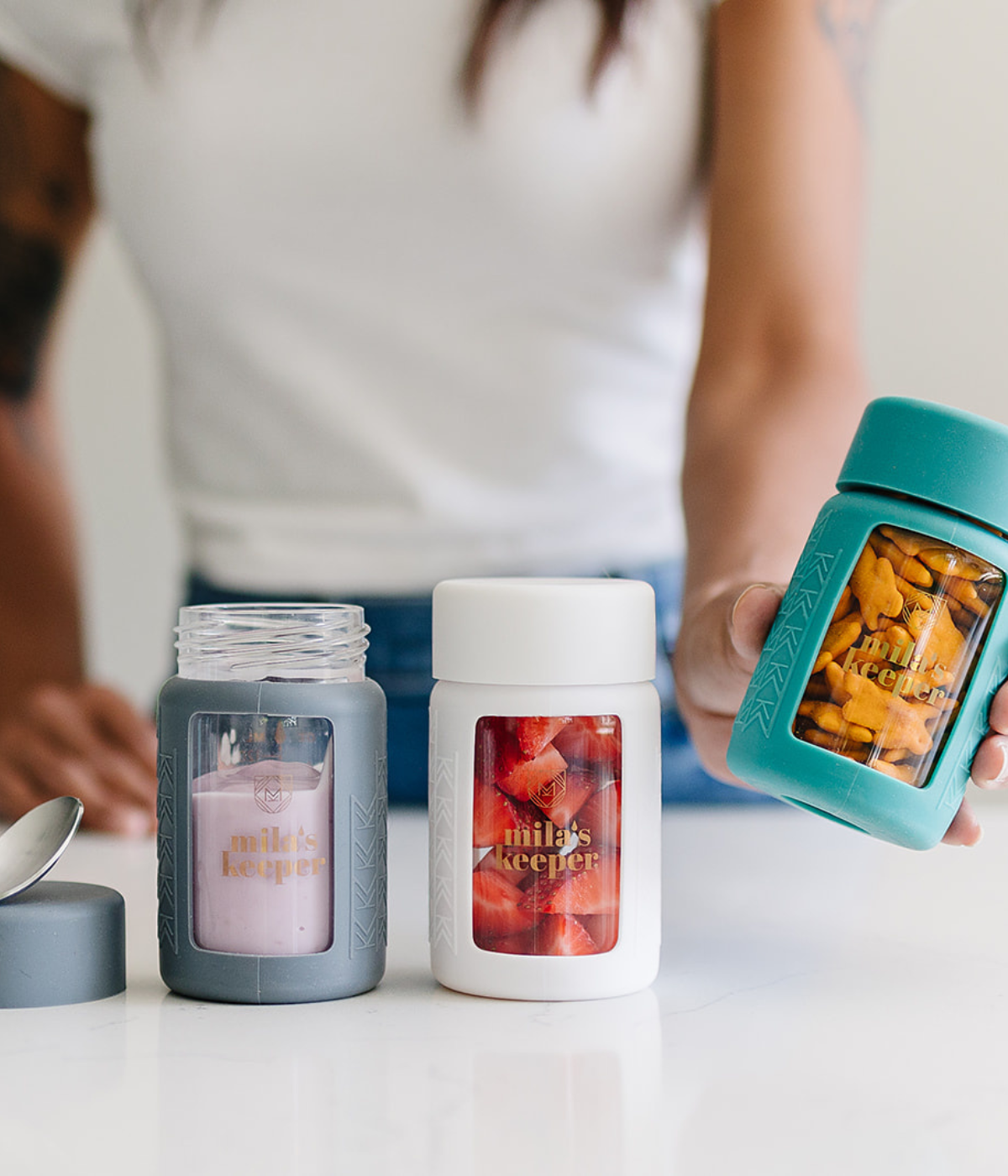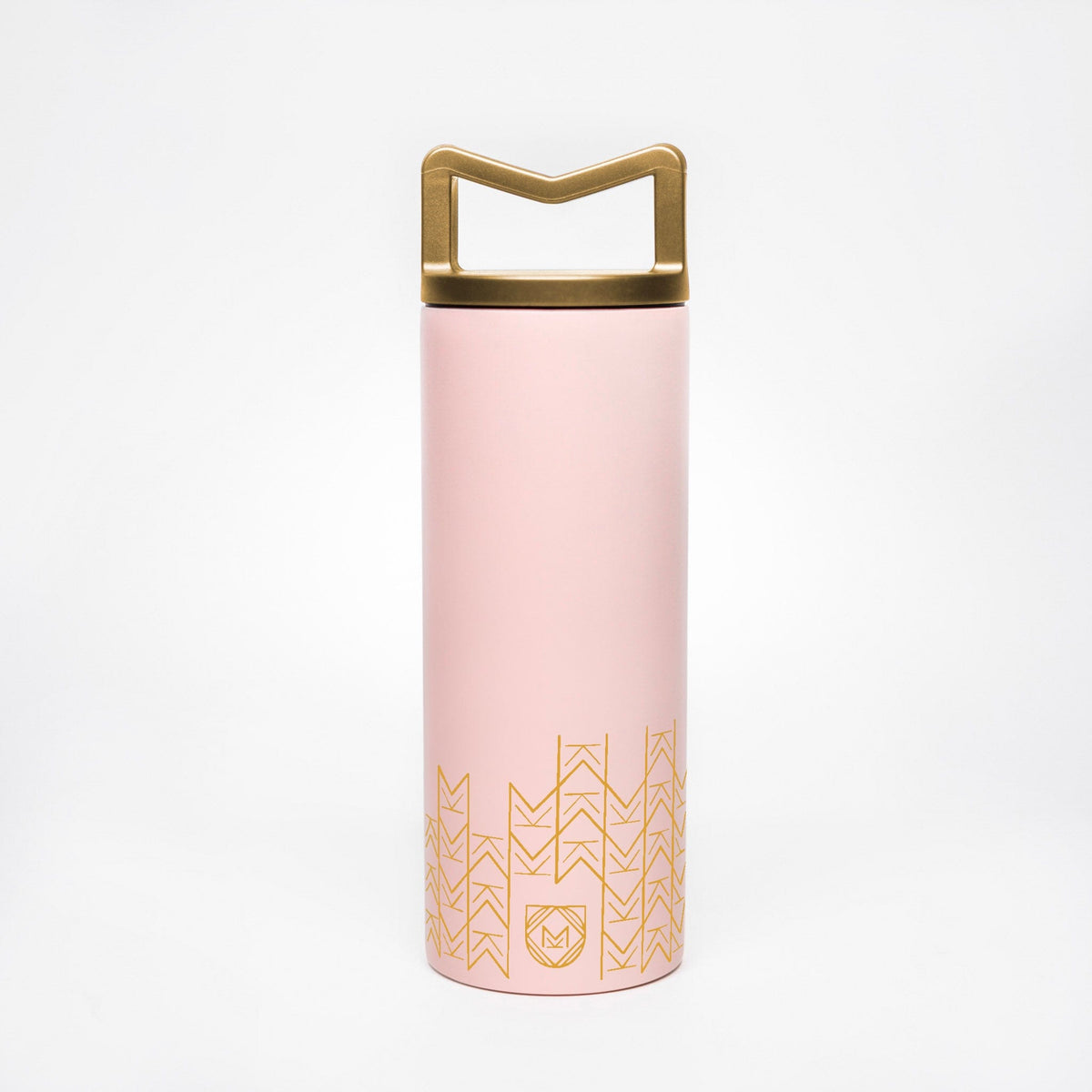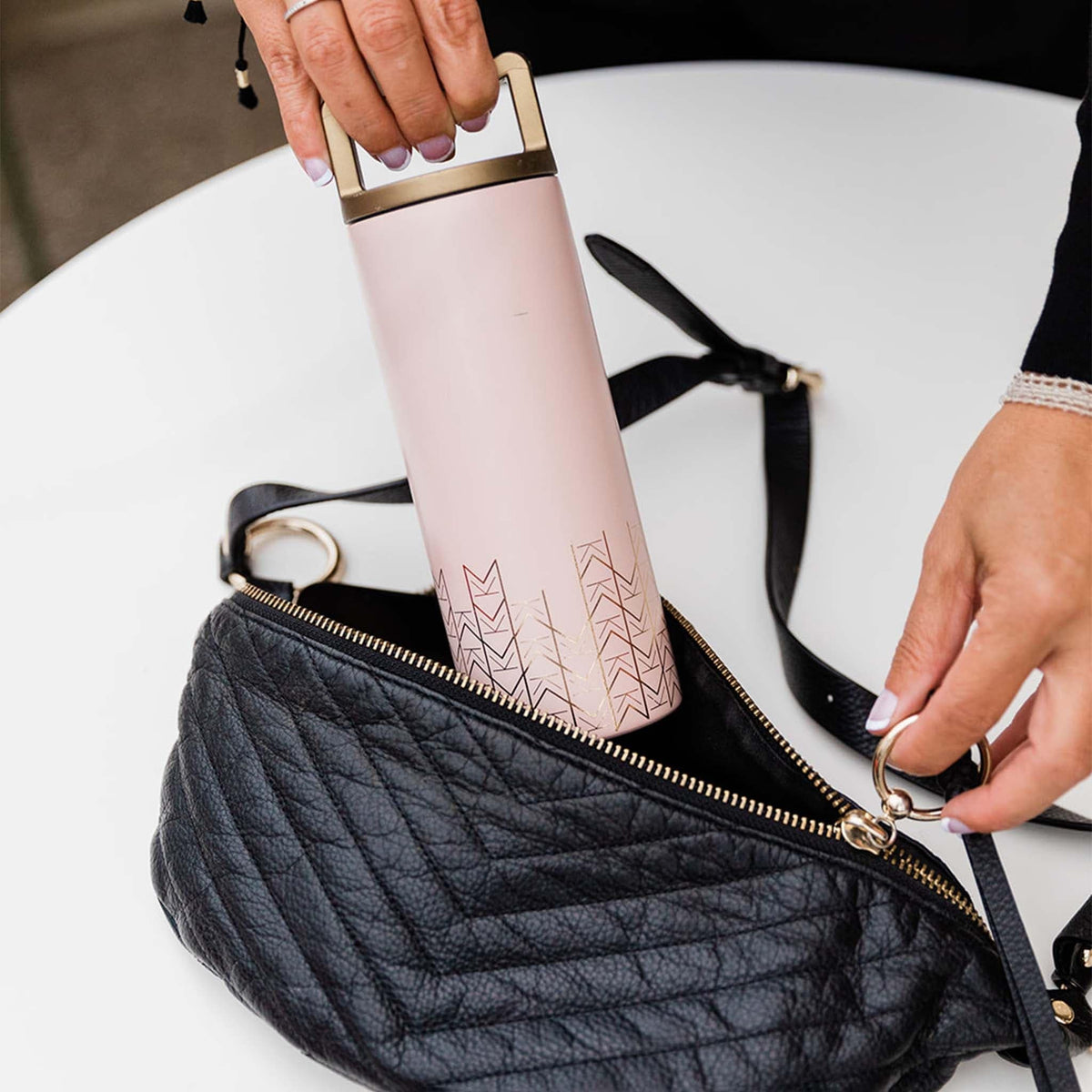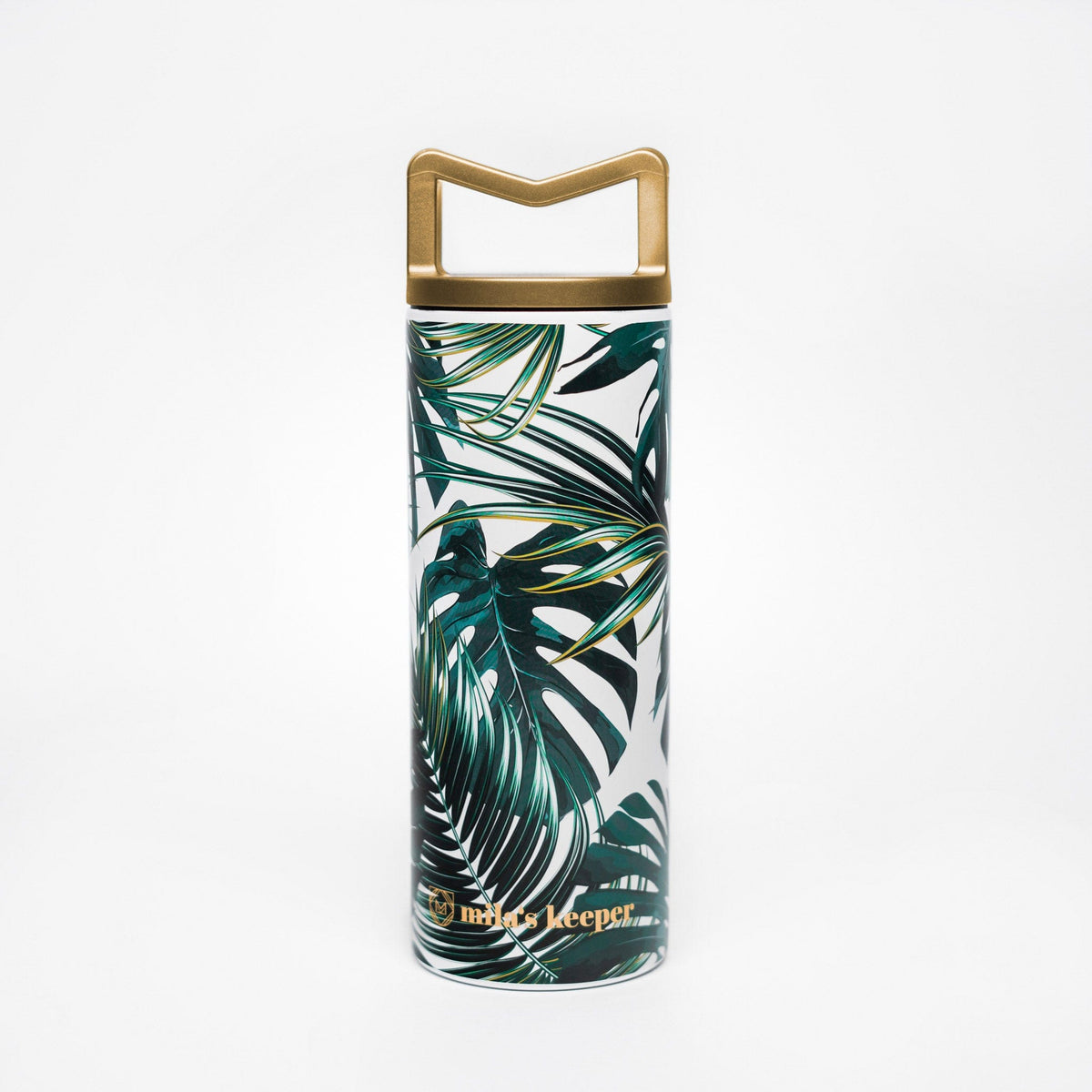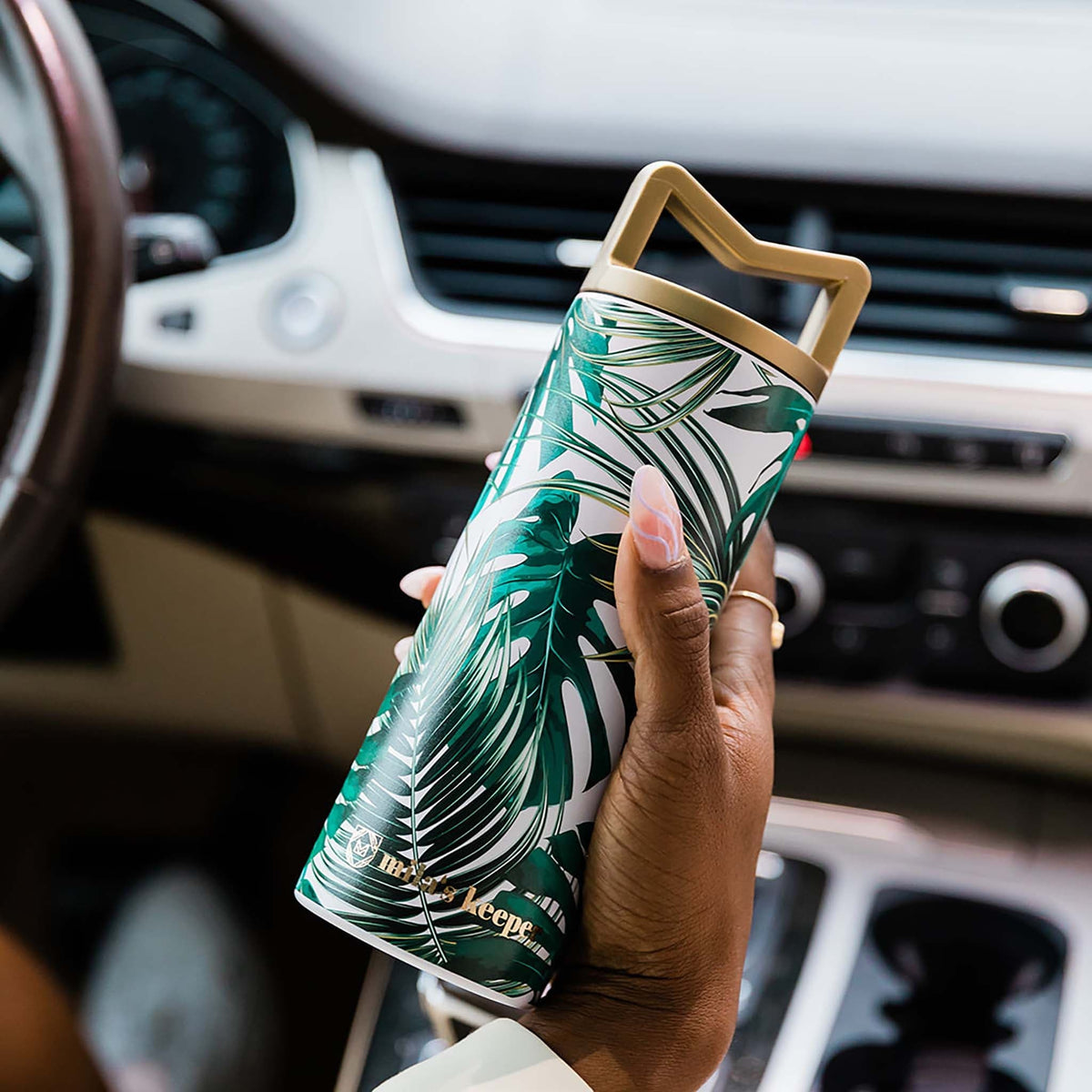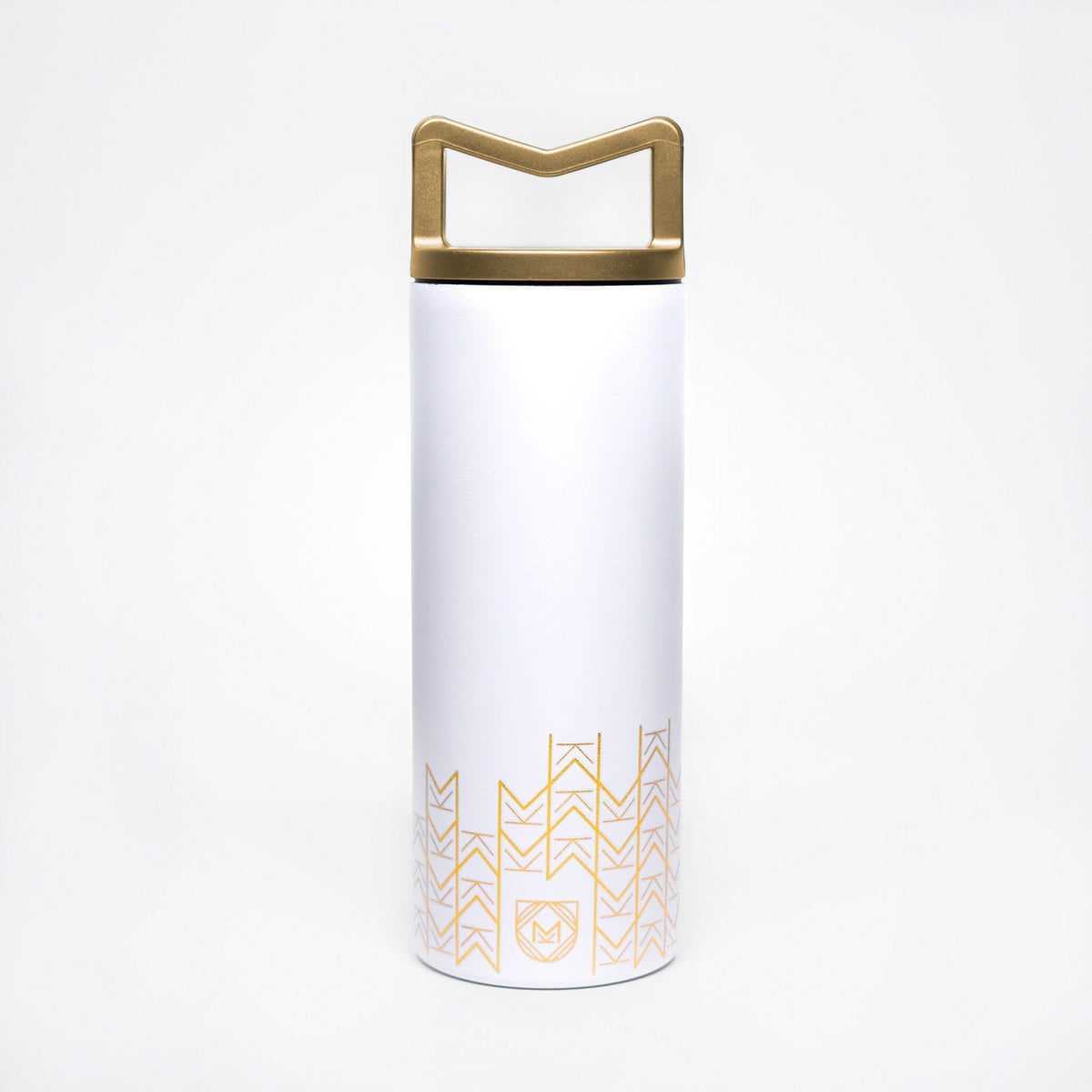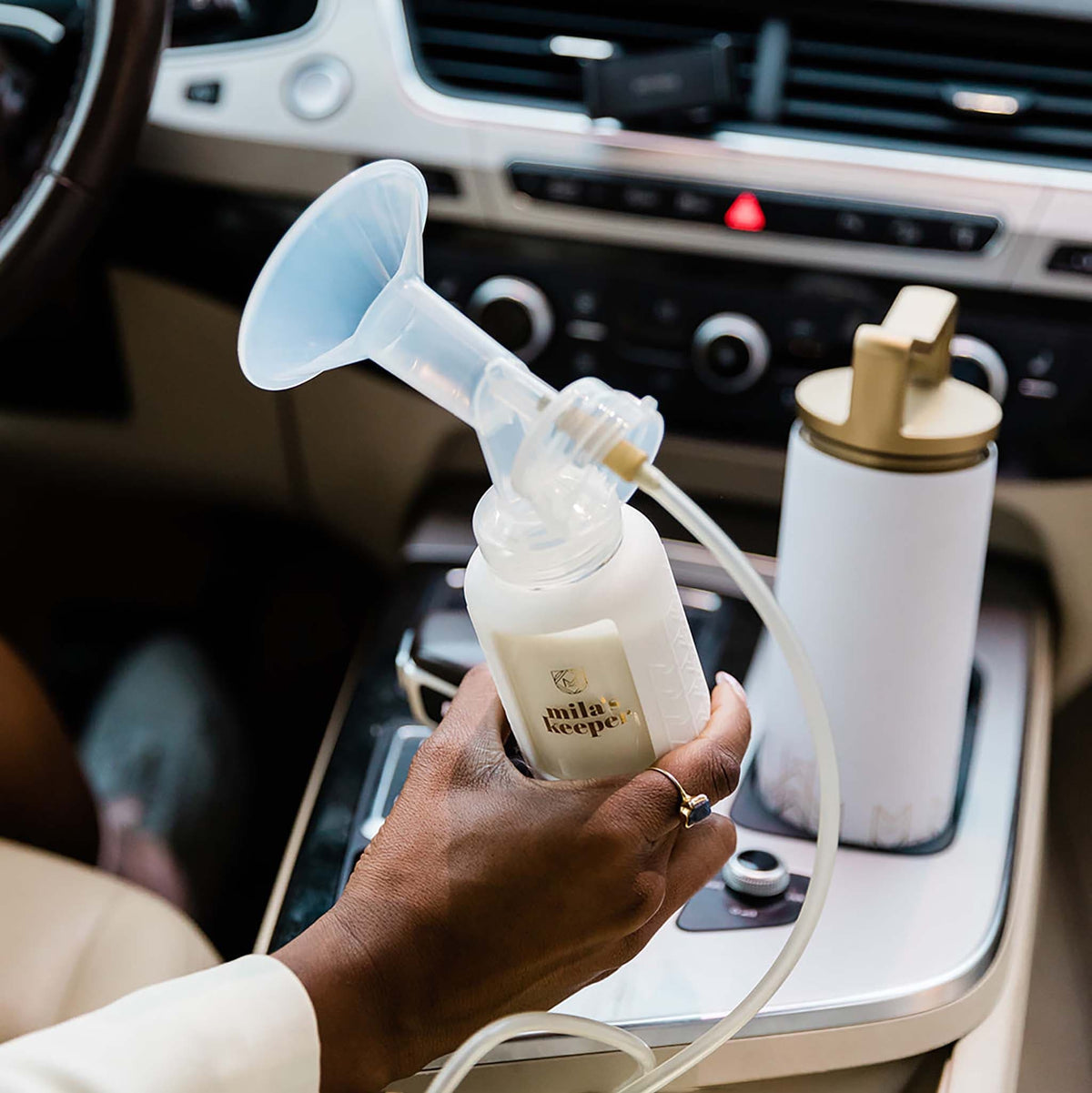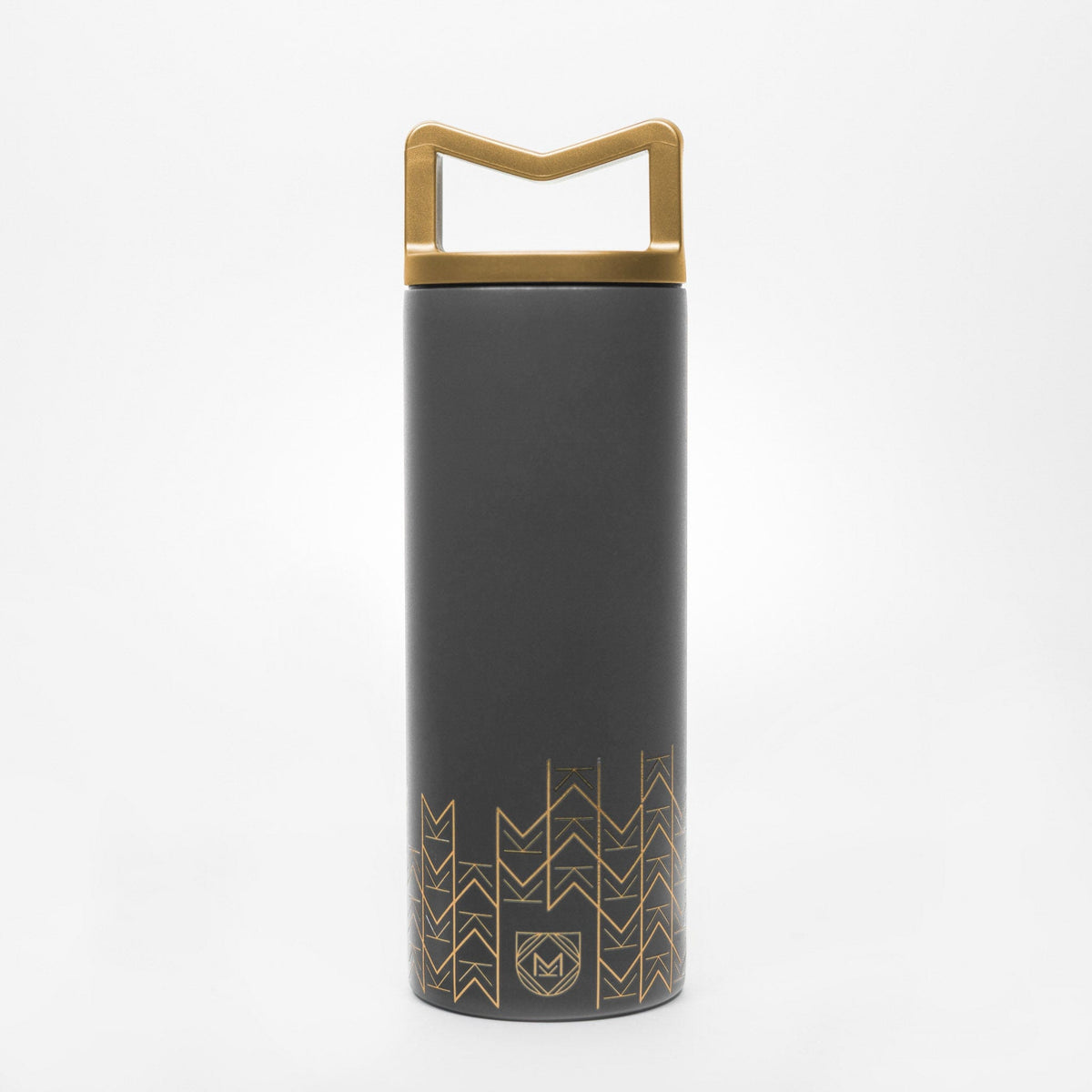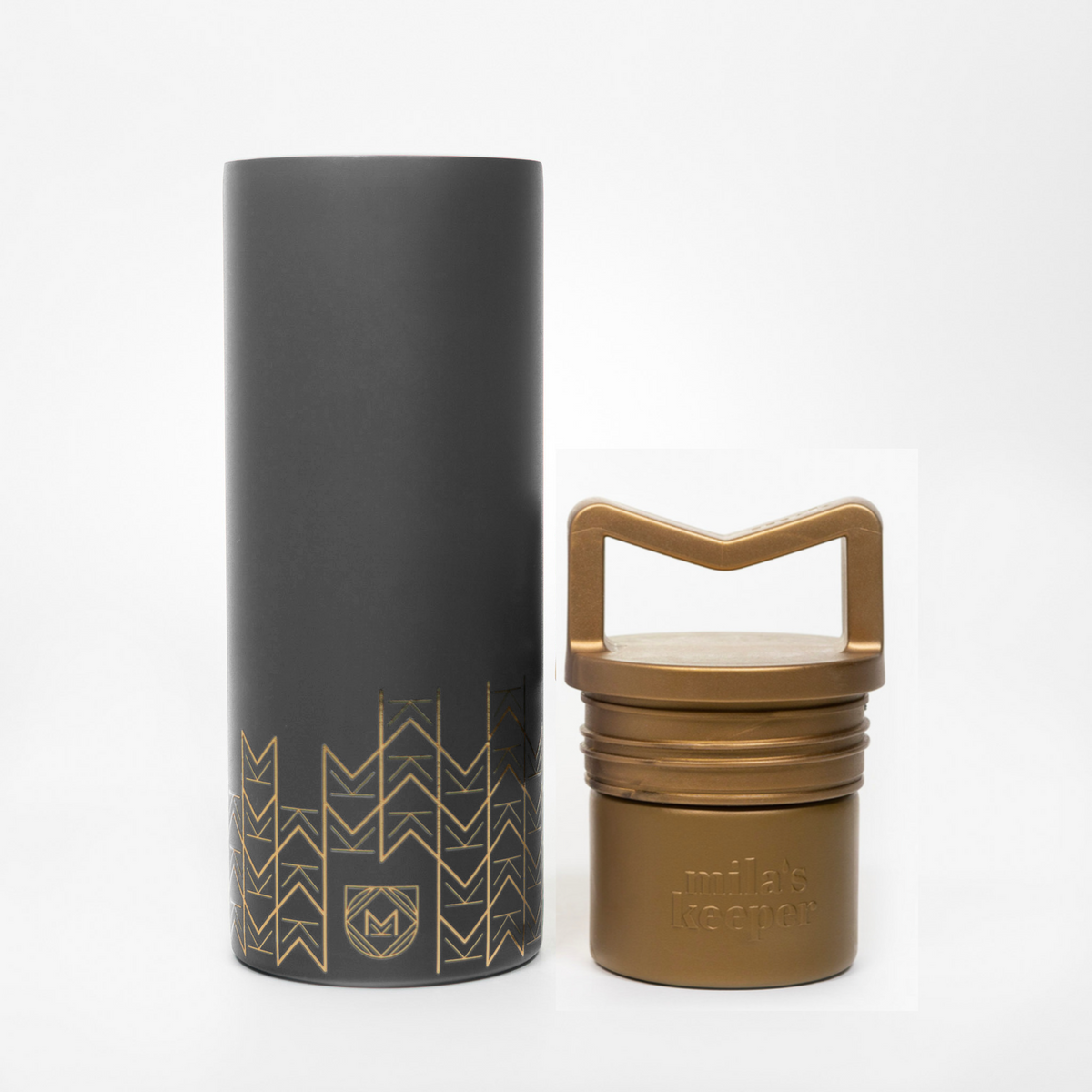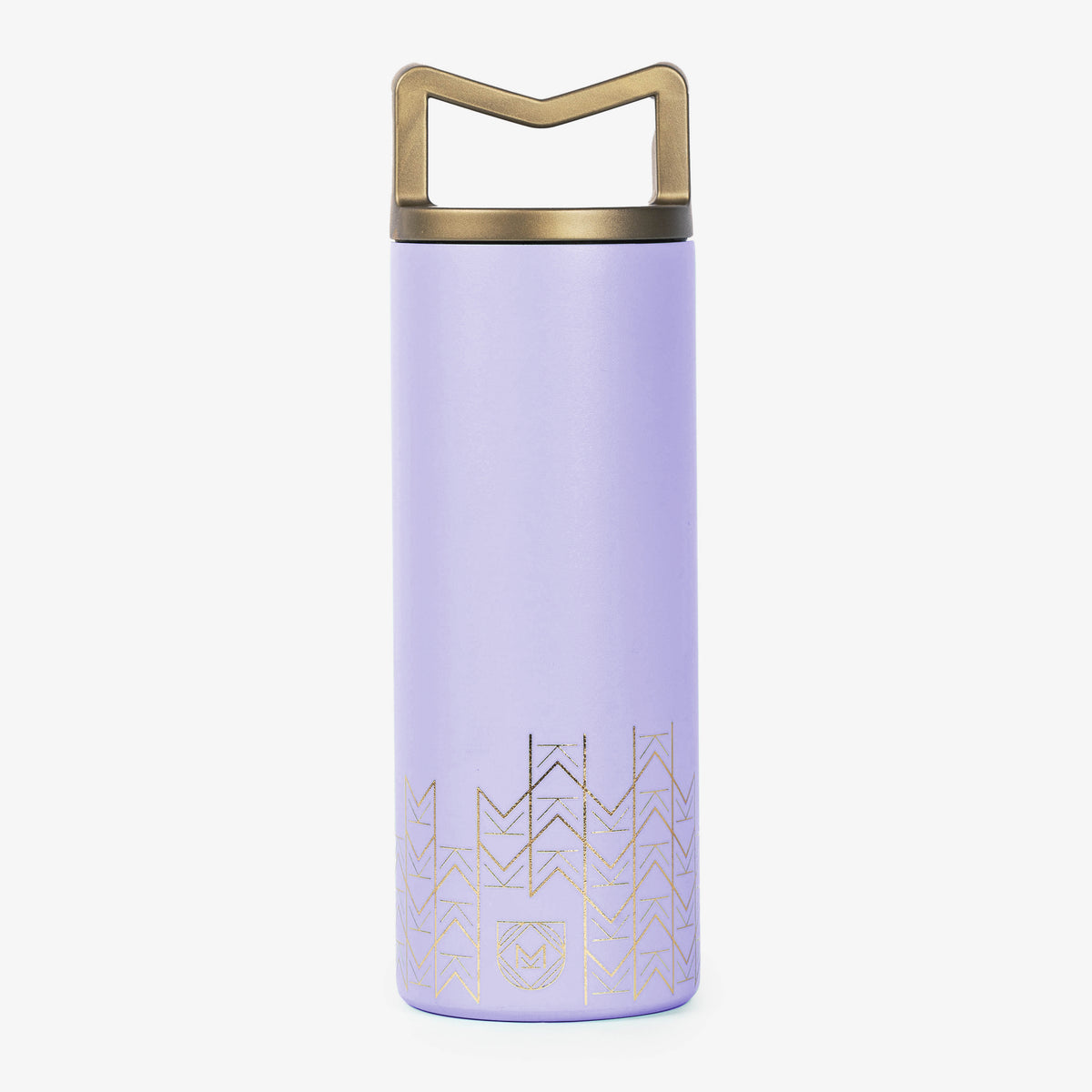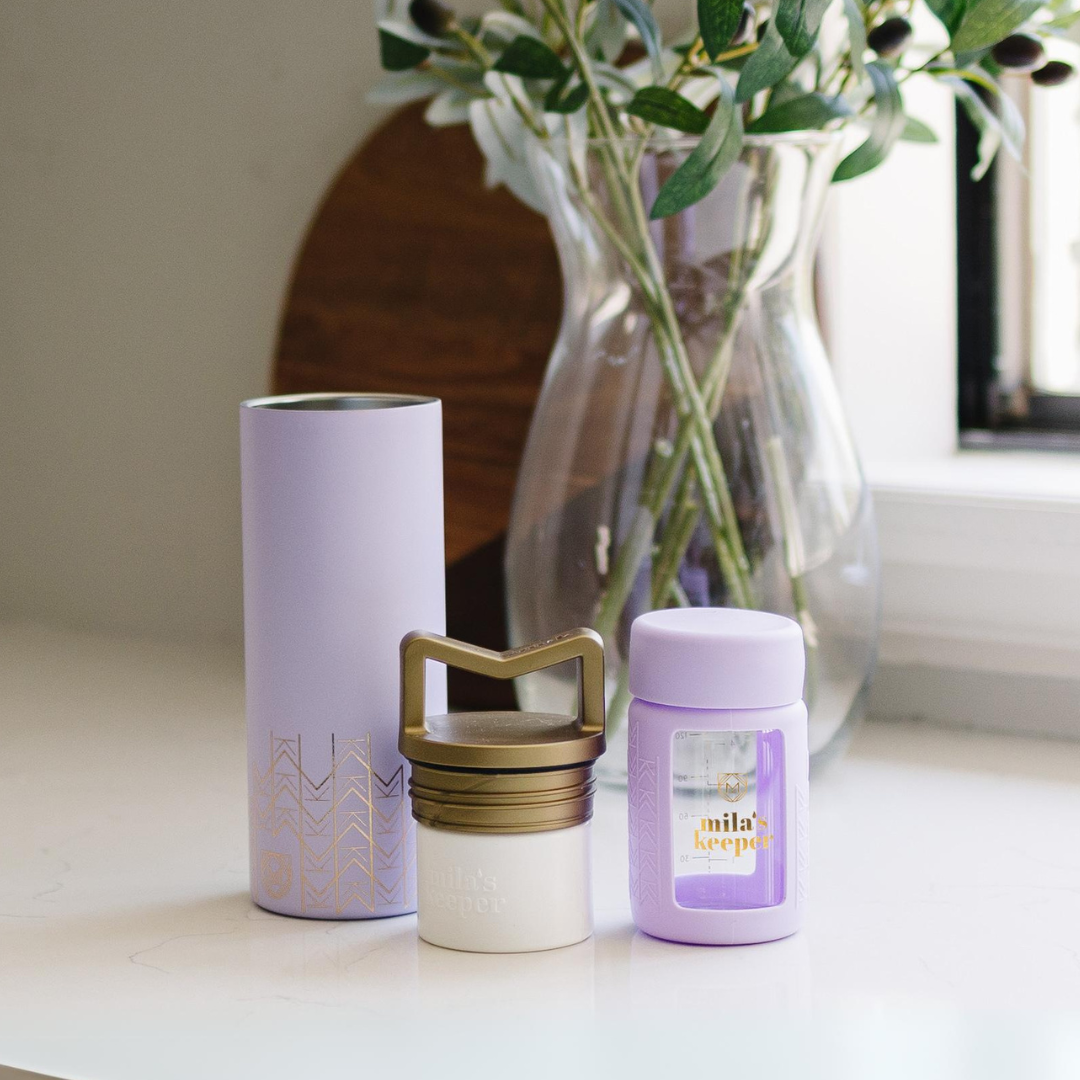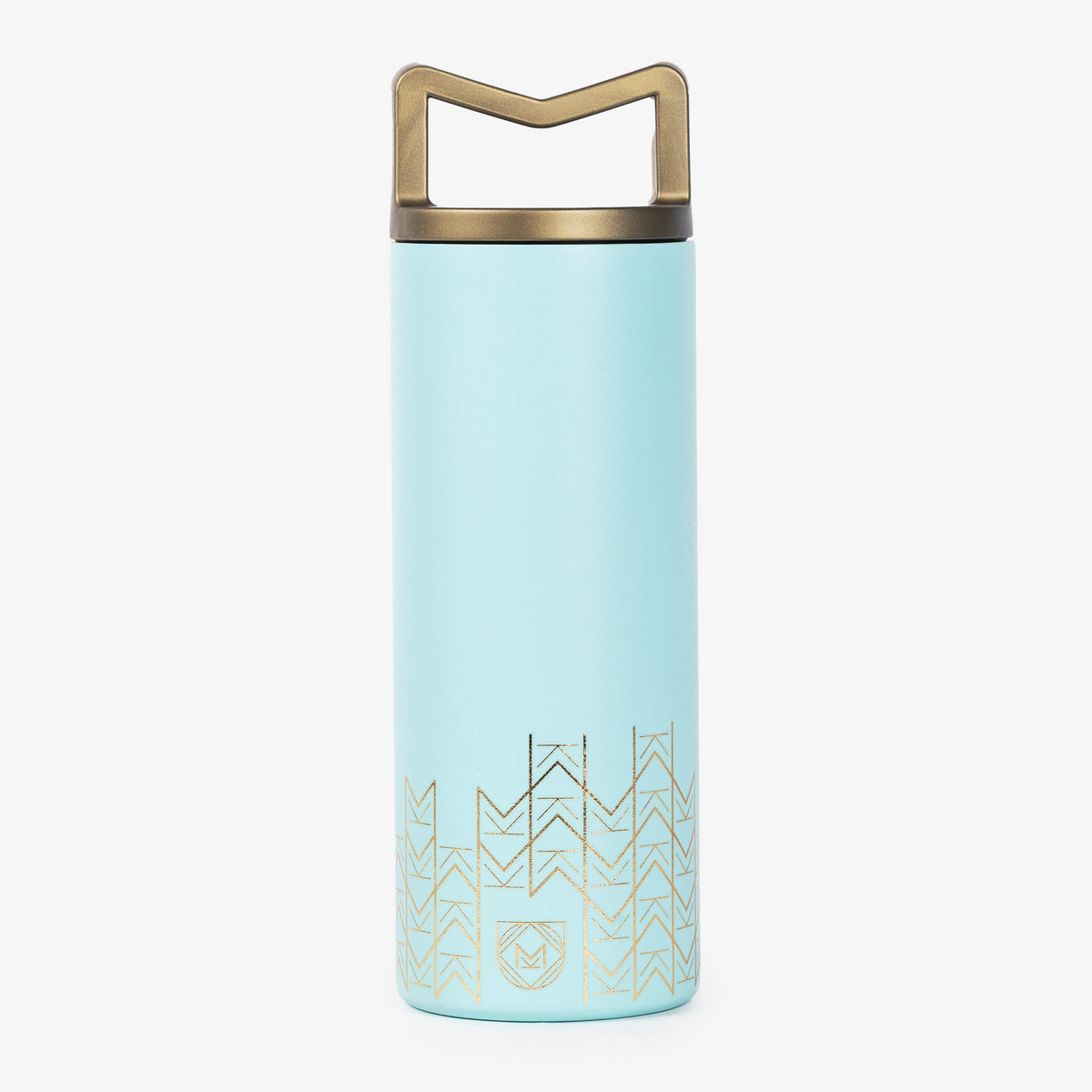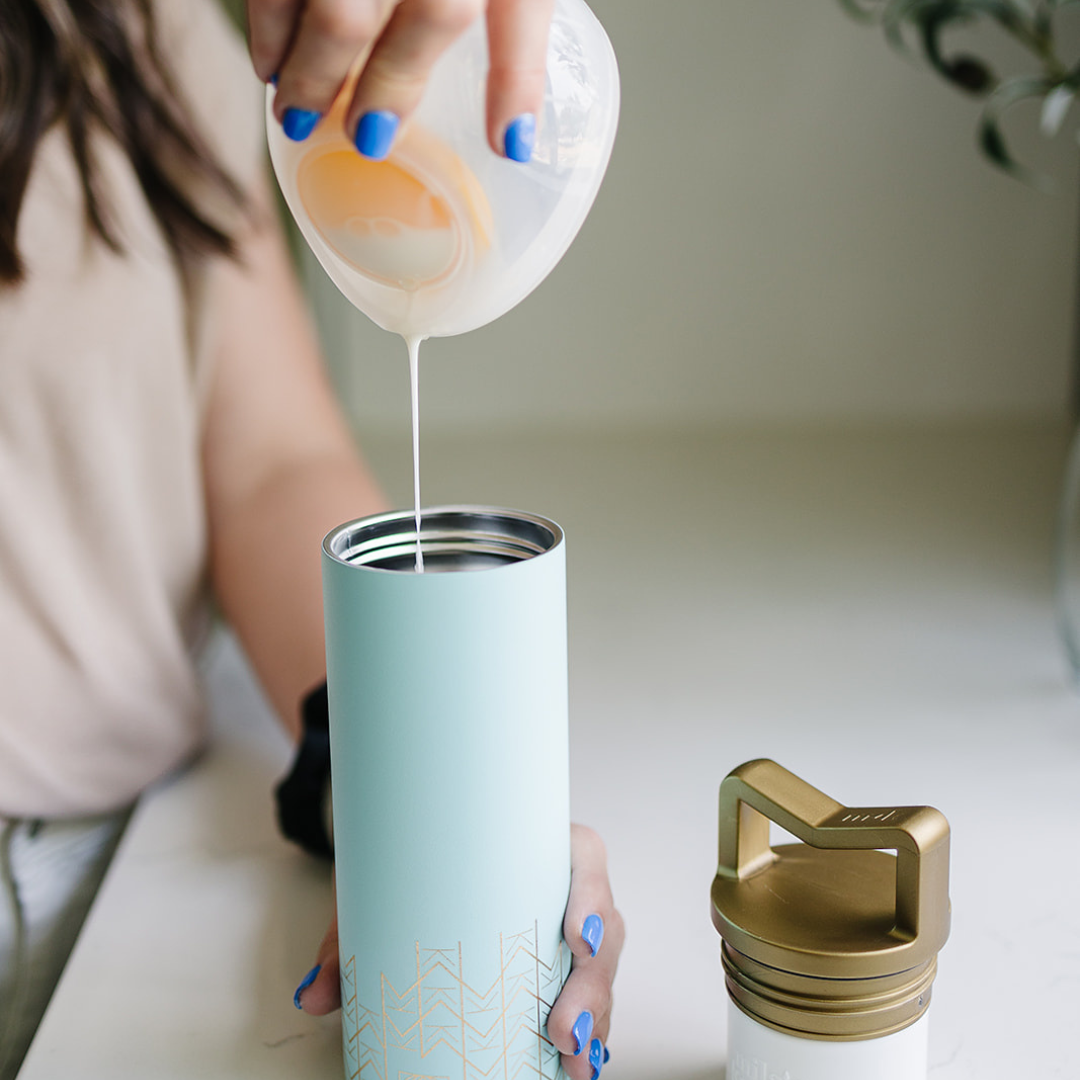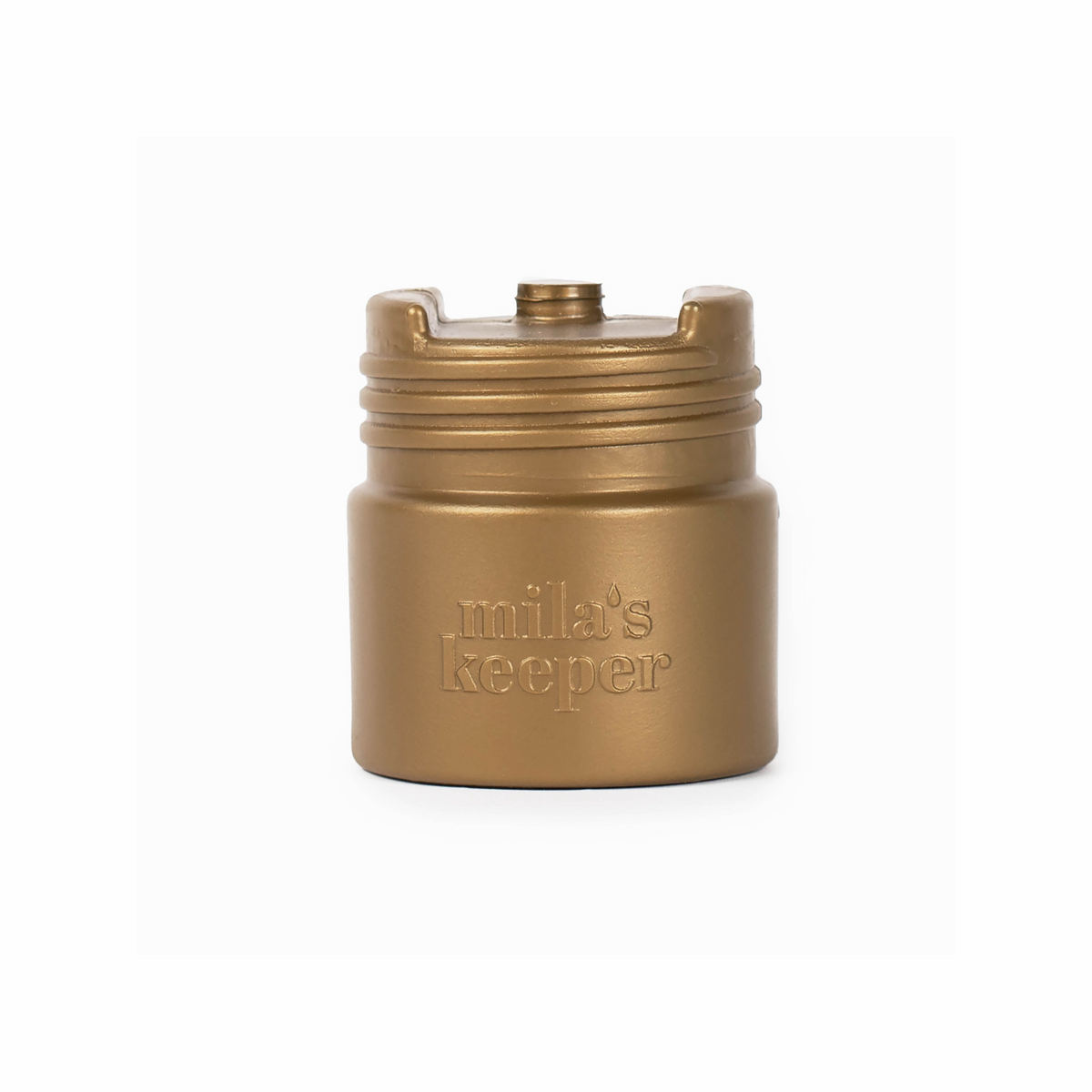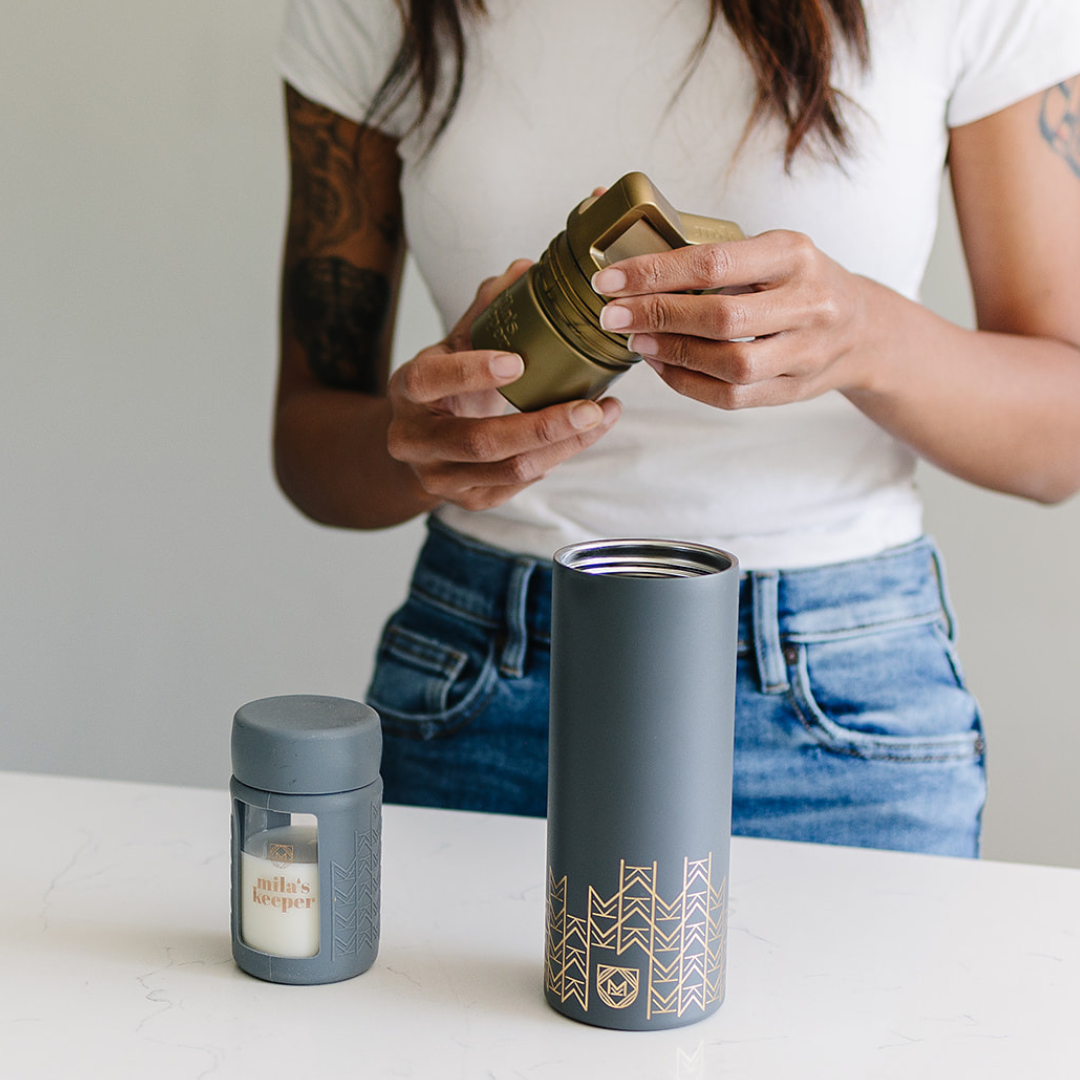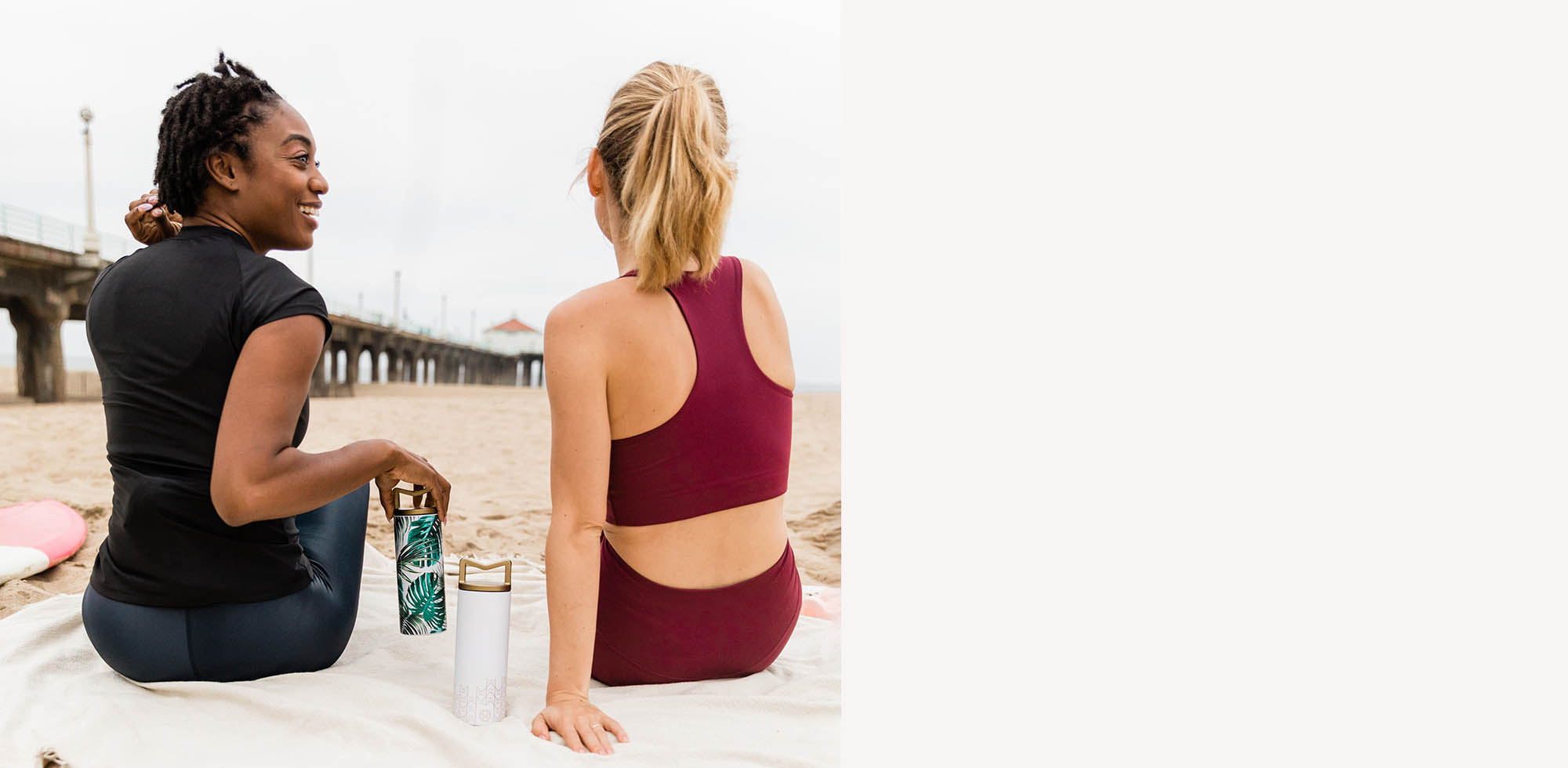In theory, most of us know the importance of staying hydrated. Water is vital to our bodily function, as it helps to regulate body temperature, carries nutrients and oxygen to your cells, normalizes blood pressure, protects our organs and tissues, and flushes bacteria from the bladder- pretty significant stuff!
In practice, however, many of us still wonder how much water we actually need to drink in a day. You might have heard that you need to drink eight 8-ounce glasses of water a day, or you take your weight and divide it by 2 and that’s how many ounces of water you need to drink in a day. For a 140 lb person that would be 70 ounces. Sometimes the recommendations are broken down by gender: 102 ounces for men and about 72 ounces for women. Any way you break it down, you’re probably going to be aiming to drink anywhere from 64 ounces to 104 ounces of water in a day as a healthy adult.
Certain conditions necessitate more water intake such as if you’re active and sweating, if you’re in a hot climate, or if you’re taking certain medications that can cause fluid loss, such as a diuretic. In such situations, it is recommended that you increase your water intake as needed.
What about if you’re breastfeeding? Certainly, this is a situation where your body needs extra resources. Put simply, do our bodies need more water when breastfeeding? It turns out they do. It is not a drastic increase, because, after all, mamas are incredibly resilient!
Nonetheless, breastfeeding women do require slightly higher levels of water intake than they do when they’re not lactating. The question, of course, is how to gauge whether you are getting enough water.
 How much water should you drink while breastfeeding?
How much water should you drink while breastfeeding?
You can find various charts that claim to tell you exactly how much water to drink based on a multitude of factors, while some people say your body knows when it needs water and to get the right amount, simply drink when you’re thirsty.
The most commonly recommended amount that we’ve seen says that breastfeeding women should get about 128 ounces of fluids from all sources a day, with about 104 ounces of that being water. That translates to about 13 cups of water per day. So for that 140 pound woman, that's just about twice as much as water if she weren't breastfeeding.
Remember though, if you live in a particularly hot climate or find yourself sweating a lot, you may need to get in a little more than that.
Many women find themselves feeling exceptionally thirsty while breastfeeding and worry that they’re not getting enough water. It turns out there’s an interesting reason for that, and it’s probably not because you’re dehydrated.
Why do I feel thirsty while breastfeeding?
If you feel thirsty while breastfeeding, it’s probably due to the release of oxytocin during the let-down. The let-down reflex is the process that allows milk to flow from milk-producing cells in the breast to the milk ducts, where it can be accessed by your baby. The let-down reflex is initiated when the hormone oxytocin is released in your body in response to your baby suckling, the sound of a baby crying, or even by just thinking about your baby!
Does the amount of water you drink affect your breast milk production?
If you haven’t been able to meet the recommended amount of water for the day, it should NOT affect the production of your milk by too much. You should still be able to produce your average amount of breast milk unless you’re seriously dehydrated.
You should aim to achieve the recommended amount daily, but of course, you’re busy with other things and not all of your to-dos will be met every day.
If you find yourself wondering if drinking more water will increase your breast milk supply, there isn’t any hard and fast data suggesting that it does. The best ways to increase breast milk production are still considered to be things like nursing on demand, allowing your baby to drain the breast at each feeding, and getting rest and eating well.
We know you’re focused on your little one, but just remember that it’s important to keep yourself healthy too! Regularly not getting enough water can lead to fatigue, constipation, and urinary tract infections (UTIs) among other things.
If you haven’t gotten enough water in a day, you may not want to overcorrect by guzzling all the water you need at once.
Drinking too much water may actually decrease your breast milk production. When overhydrated, your body could work to restore its electrolyte balance by dumping excess water in your urine, which diverts water away from your breast.
Do not add this to your list of things to stress about, however, because we’re talking about extremes here. A small Canadian study showed a decrease in milk supply when the mother’s fluid intake increased or decreased by 50% over their usual amount.
As with most things, balance is key! You don’t want to drink so much water that you are uncomfortable, but you don’t want to drink too little so that you start to show signs of being dehydrated.
 How do you know if you’re dehydrated?
How do you know if you’re dehydrated?
One of the simplest ways to tell if you’re dehydrated is by checking the color of your urine. If your urine is pale yellow or almost clear, you’re likely getting enough water. If you find yourself urinating less frequently, or your urine is dark yellow or even light brown in color, you could be dehydrated.
Signs of dehydration while breastfeeding can be different for each person. Some people may experience these warning signs of dehydration:
- Weakness
- Low blood pressure
- Dizziness
- Confusion
- Chapped lips
- Thirst
- Tiredness
- Dizziness
- Lightheadedness
- Muscle cramps
- Dry Mouth
- Less urine
- Headache
- Dry skin or tongue
- Fainting
- Confusion
- Fast heart rate and breathing
The symptoms of dehydration can look like other health conditions. See your healthcare provider for a diagnosis.

Can your baby get dehydrated if you don’t drink enough water while breastfeeding?
Since breast milk is more than 80% water, if your baby is nursing as usual, they should be getting enough water through your breast milk, even if you haven’t been able to reach your water quota for the day.
If you live in a warmer climate, you may have been told by someone of an older generation that you need to be giving your baby water.
In fact, there are areas of the world where the practice of giving babies under 6 months water is still widespread.
It is not, however, recommended to give a baby water during their first six months and can actually adversely affect their health. This is due to the fact that drinking water will cause babies to feel full. drink less breast milk, and thus not meeting his/her full nutritional benefits from breastfeeding. Breastfeeding provides all the water a baby needs and formula-fed babies should only be given water when mixed with formula.
This is a common issue around the world, and is often caused from recommendations from previous generations whom did not have this knowledge in their current times. So it is important to gently inform others of this important fact about breastmilk, its sufficient water content. So when the WHO and UNICEF recommend exclusive breastfeeding during a baby's first 6 months, this means breastmilk without additional water or foods.
Since we’ve already established that your body would have to be severely dehydrated before it affected your breast milk production, the concern with dehydration in babies really comes from a breast milk supply issue.
If you’re not producing milk, and aren’t aware of that fact, your baby could become dehydrated. This is extremely rare and if you have questions about your breast milk supply you should speak with a lactation specialist or your doctor.
The warning signs of dehydration in a baby include:
- Lack of wet or dirty diapers
- Dry tongue and mouth
- Lethargic or difficult to wake for feedings
- Weak suck or latching-on problems
- Feeding less than eight times in 24 hours
- Losing weight
 Ways you can ensure you’re getting enough water
Ways you can ensure you’re getting enough water
You know you should be staying hydrated, but what if it’s a struggle for you? If you have a hard time getting enough water under regular circumstances, it can be a challenge to increase the amount you need while breastfeeding. Here are a few suggestions we have.
Add some flavor!
If you don’t drink enough water daily because you don’t enjoy the taste, maybe try adding something to the water to make it more appealing to you.
Adding a squeeze of lemon or lime is always a good option.
You could also infuse the water with cucumbers and mint for a spa flavor. Who knows, maybe the spa flavors will even inspire someone in your house to give you a massage!
There are also various flavor packets on the market that can be added to water to make it more appealing to those that don’t enjoy the taste of water. When searching “flavor powder for water” you get results for things like flavored electrolyte powder packets, flavored vitamin powder packets, and even skittles flavor packets. There is all manner of powdered drink mixes (healthy and not-so-healthy) to make your water taste like something other than water.
You can also eat your way to proper hydration levels
You don’t have to rely entirely on drinking water to achieve proper hydration. There are a variety of foods that contain high percentages of water, and incorporating them into your diet will help you get the hydration you need.Here’s a list of some water-rich foods :
- oranges and other citrus fruits
- lettuce
- cucumbers
- spinach
- watermelon, cantaloupe, and other melons
- Strawberries and other berries
Enlist your partner to be your liquid wingperson
It can often seem like breastfeeding is a one-woman job, and in most ways it is, but there are things your partner can do to pitch in while you’re occupied with providing that liquid gold to your infant.
In fact, one of the ways your partner can help is by ensuring that your thirst is quenched!
If you’re in your early days of breastfeeding and your partner is around during the day, they can make sure you have a fresh glass of water on hand each time you sit down to breastfeed.
If your partner isn’t around during the day, maybe they can see to it that you have a fresh glass of water before leaving for the day, or they fill up your water bottle before you take off for work.
Invest in a good reusable water bottle
Sometimes all it takes to get you drinking more water is the right container.
If you find it tedious to keep refilling a water glass, opt for a larger bottle that won’t require refilling as often. There are plenty of options out there from the 16-ounce size to even the super large 64-ounce containers (some even have funny sayings marking your progress to keep you motivated). Mila's Keeper MilKeeper is a great option as it is designed to be used as a breast milk cooler and as a water bottle.
If you’re concerned about using plastic and would prefer glass, there are tons of good options- many with fun silicone covers, similar to our glass breast milk storage bottles. You and your baby could even match with similar colors!If you prefer to drink cold water, maybe an insulated stainless steel container is the way to go.
Set a schedule
Maybe you’re someone who works better with a plan and a set schedule. When your baby is young, they can be breastfeeding 8-12 times a day. One way to make sure you’re getting enough water is to plan to drink a glass of water when you wake up, a glass before or during each breastfeeding session, and a glass before bed. This is a simple way that should provide you with adequate hydration without you having to keep track of how much you drank throughout the day.

Final thoughts….
When you’re going through a new experience like breastfeeding, it’s easy to second-guess everything and rush to google all the answers. We hope that you remember that we’re here to help you on this journey and will give you the best guidance we can!
If you have serious concerns about your hydration or that of your baby, speaking with your doctors or lactation consultant will be the best way to make sure you and your baby are getting what you need and staying healthy.
Keep Reading related blog: How Breastfeeding and Breast Milk Production Work
--
A female-designed and female-run company, Mila's Keeper is on a mission to empower women to thrive during their breastfeeding journey by offering reusable, eco-friendly breast milk storage solutions for their day-to-day needs. Get the latest tips and info on Mila's Keeper products by following us on Facebook, Twitter, Instagram, Pinterest, and LinkedIn.

